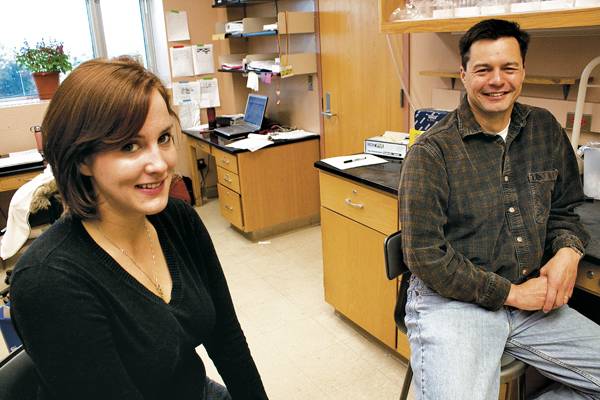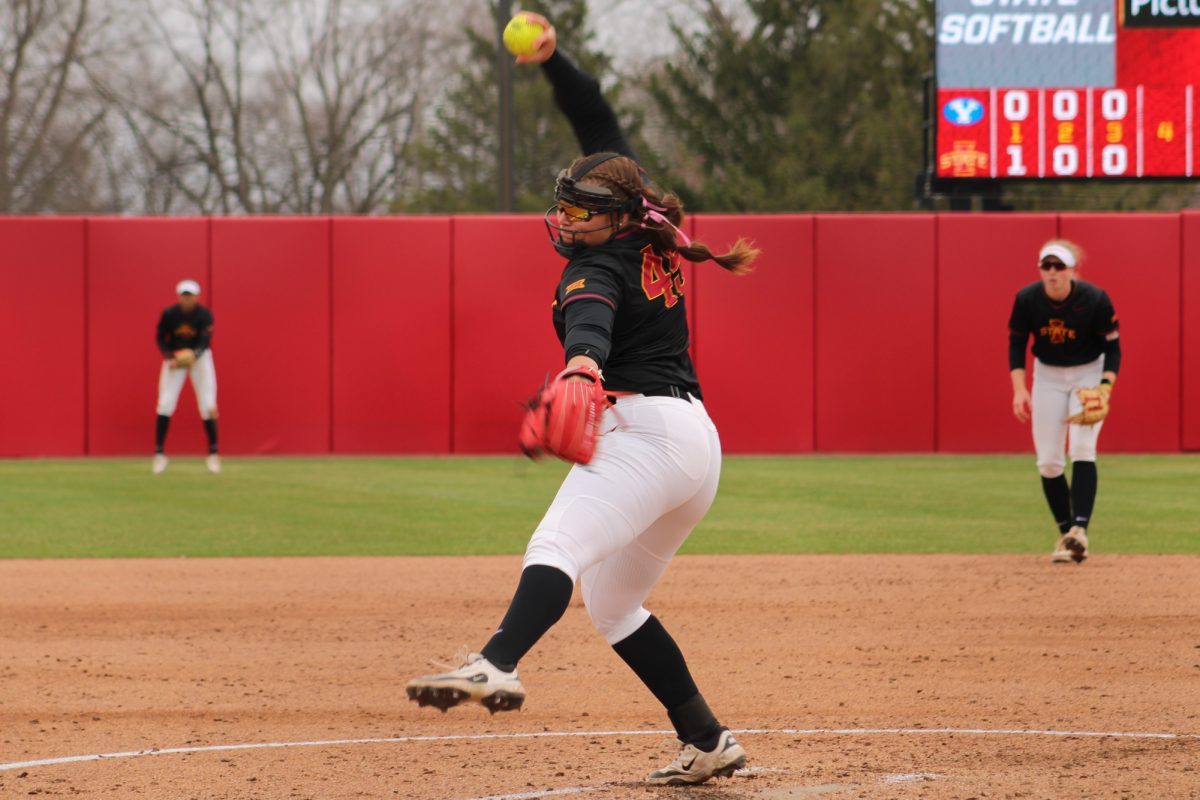Team discovers a ‘potential inhibitor’

Frannie Mann (left), a doctoral candidate in biochemistry, and Dr. Reuben Peters, associate professor, pose in their lab in the molecular biology building. Mann and Peters believe they may have found a “potential inhibitor” to tuberculosis. Photo: Tim Reuter/Iowa State Daily
October 15, 2009
An ISU professor is leading a group of researchers from several universities to better understand and find a cure for tuberculosis.
The disease kills about 2 million and affects 9 million people each year, according to the U.S. Centers for Disease Control’s Web site.
Reuben Peters, associate professor of biochemistry, biophysics and molecular biology, led a team of scientists from Iowa State, the University of Illinois and Cornell University to research a potential cure for the life-threatening ailment.
The team was able to get started with funding from the National Institutes of Health’s National Institute of General Medical Sciences.
The team needed to find an enzyme that would neutralize the edaxadiene-producing enzymes. The team found that if this enzyme was neutralized, the tuberculosis-causing bacteria would die.
“The collaborator from Illinois provided the inhibitors so we could experiment in blocking the enzyme,” Peters said.
Meimei Xu, associate scientist of biochemistry, biophysics and molecular biology, worked on cloning the genes on which the enzymes could be tested.
“If we can figure out the enzymes, this will lead to resistance to the pathogen, and we can then make an inhibitor. This could really help cure tuberculosis,” Xu said.
Francis Mann, graduate student in biochemistry, biophysics and molecular biology, was the only graduate student working on the program. She has been involved with the project for three years.
“This kind of research is new and exciting, and I have really had the ability to make it my own,” Mann said.
Mann has based her Ph.D. in biochemistry around this breakthrough research.
“By being involved with this research, this will significantly help me in obtaining jobs and being successful,” Mann said.
Although the team has not found a cure for the disease, or even a drug that could be available in drugstores, this is a significant step in finding a cure.
“We don’t know why the bacteria does what it does,” Mann said. “We didn’t solve the whole puzzle, but we solved the center piece that can tie it together.”
“The primary benefit of this research is the possibility to block tuberculosis in humans. The second is the ability to see and probe how the ailing human immune system works,” Peters said.
The research the team has been working on will be published in an upcoming article.






